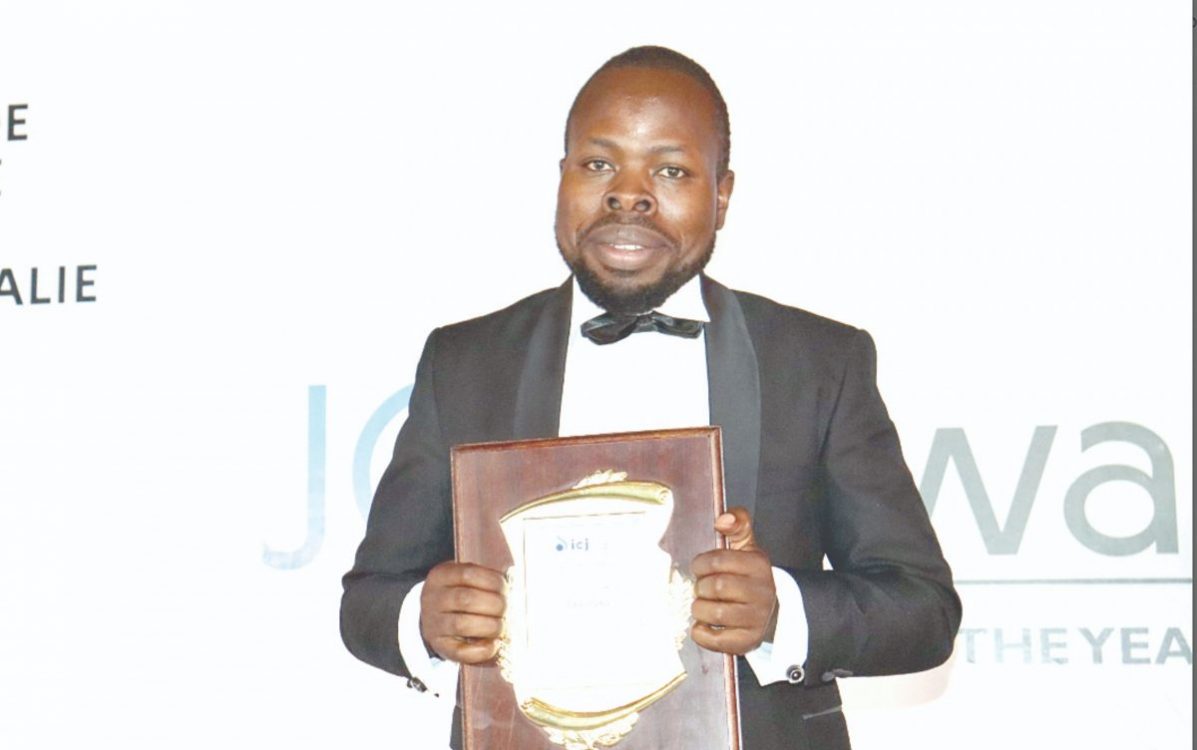Ruto is not above the law, must obey orders, says lawyer Ochiel

The current standoff between the Executive and Judiciary has brought to the fore long standing tension and suspicions between the two arms of government.
Public litigation lawyer Dudley Ochiel who won the 2023 Jurist of the Year Award and has participated in the cases President William Ruto claimed as a setback to his agenda, offered his reflections on the tussle.
Q: President William Ruto said judicial impunity is unacceptable in Kenya. Do you believe there is judicial impunity?
A: The judiciary cannot harm anyone. Anybody can appeal if he is not satisfied. It is only the judiciary that must hear you out if you have grievances. It is also the fairest of all the branches of government.
Everyone will be heard by court in case of a dispute. I believe judicial impunity is a ploy to escape his oath of office which commands him to obey the rule of law including court orders.
Under our constitution, the referee of the game is called the judiciary, Parliament makes laws and implements policies the executive prefers but at the end of the day the judiciary decides whether that law is valid or not under the constitution. In that sense, there will always be conflict and these other two branches of governments because of the system of checks and balances. Some people are slow to understand that the judiciary has a law making power because it determines which law is valid or not. It also determines which executive decision is valid and which one is not.
Q: Should there be judicial impunity as the president claims how best should it be dealt with?
A: The constitution very clearly provides for removal of judges, and the person who appoints a tribunal to remove judges is the president. If the president has evidence against any judge, then he needs to table it before the JSC. The JSC even has four representatives that relate so closely to the president.
Q: The Building Bridges Initiative (BBI) proposed a Judiciary Ombudsman to oversee the judiciary alongside JSC. Do you think it is the right time to consider such a proposal?
A: Not because of the president’s current outburst. This is just someone who is unhappy to be told that he is wrong. It’s not sufficient for us to have a judiciary Ombudsperson because the president is unhappy. We had former president Mwai Kibaki who was told off several times by the Commission on Implementation of the Constitution and the judiciary, he never suggested that we should have a judiciary ombudsman or we should change the constitution. He also never attacked the courts or litigants.
Q: The president in a statement replying to Law Society of Kenya condemnation of his attack against the Judiciary said the organisation has no mandate to advise him on matters of constitution and independence of the judiciary.
A: He is wrong. This is because Section Four of the Law Society of Kenya Act says that it must advise the government and the public on matters concerning the law. That’s the mandate of the LSK, to assist the public, government and the judiciary on matters concerning the law.
Q: The Head of State has also said that this is a moment in history where our country has a chance to break free from the chain of impunity and realise the transformation mandated by the people and legislated by parliament. Is this the right moment to tame a runaway judiciary?
A: There is no runaway judiciary. I think we have had surveys where people have shown that they trust the judiciary the most. The judiciary is doing its work because this is not the first time it is saying that an executive policy or a law passed by parliament is unconstitutional. If the judiciary is corrupt why then has the executive appealed the Housing Act before a corrupt judiciary?
It is hypocrisy to say the judiciary is corrupt and runaway when it stops the executive and when it allows it then it is good.
Q: What does it legally mean if a president decides to defy court decisions?
A: That can set us on the road to anarchy. If the president is sworn in to obey the rule of law including court orders, then he says he is not going to do that then any other citizen has no obligation to obey the law. It will be a free for all, the law will be violated by everyone until the president goes back to rule of law. Rule of law means equality before the law. Everyone has an obligation to obey the law.
Q: Kiambu Senator Karungo Wa Thang’wa seeks to introduce a bill that ensures that a special court is created for cases challenging government policies. What is your opinion about that?
A: We have had that kind of court before. It was the government that always won. I think before the law everyone is equal. The government is not a special judicial user. Let it fund the judiciary so that more judges are hired to ensure that justice is fast for everyone. Under Article 159 of the Constitution, everyone is equal before the law.
Q: There are suggestions that a radical judicial surgery such as the 2003 one that removed judicial officials deemed unfit is necessary now to clean up the judiciary. What is your view?
A: The previous JSC was overloaded by the president’s appointees. The JSC then could not deliver a credible judiciary and part of the radical surgery was that people did not believe in the judiciary. Now we have the Judges and Magistrates Vetting Board to filter those who should not safeguard the new constitution, and now we have the JSC. There is no proof that the current JSC cannot work. It has removed and disciplined corrupt judges. Let us give it the time to do its work. If the president is really concerned about judicial independence, then why should he appoint politicians to the JSC?
Q: Since promulgation of the 2010 Constitution. Do you think this and previous governments have walked in the path of adhering to the constitution and constitutionalism of governance processes?
A: I think Kibaki tried, maybe because it was a coalition government and the executive was checking itself internally. This government although in its second year might be the worst in rule of law and respecting the courts.












